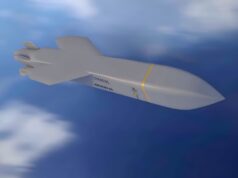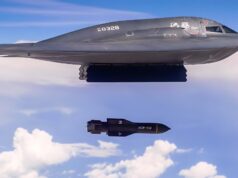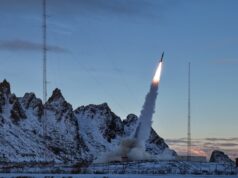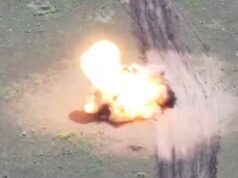The Ministry of Defence (MoD) has awarded a £4.143 million contract to Airbus Defence and Space S.A.U. for post-design services (PDS) essential to maintaining the Voyager refuelling and transport aircraft fleet.
Announced on 5 November 2024, the contract covers an initial three-year term with options for two additional one-year extensions, focusing on supporting operational readiness and long-term design integrity for the fleet.
The MoD described the contract as a “Single Source Procurement for Provision of Design Organisation Post Design Services (PDS) & Super Tanker Similarity Statement (STSS) services from Airbus Defence and Space SAU (Spain),†showing Airbus’s role as the designated Air System Design Organisation.
According to the MoD, the PDS contract aims to uphold Voyager’s “through life configuration,†meeting the Military Aviation Authority (MAA) requirements outlined in “Design Organisation Airworthiness Responsibilities RA1014, 1015(1)14b and MRP 5000 Series Regulatory Articles (RA).â€
The MoD explained that this direct procurement approach was pursued “due to technical reasons,†with Airbus providing the expertise mandated by MAA regulations, which ensures compliance with airworthiness standards. Airbus, as the original equipment manufacturer for the Voyager, holds the required capabilities for managing design support and configuration of the fleet over its lifespan.
The MoD stated that “the PDS contract must therefore be with the appointed Design Organisation, which is Airbus Defence and Space SAU.â€
The Voyager fleet is the UK’s primary air-to-air refuelling asset, used by the RAF and its partners. According to the notice, the MoD intends to utilise the contract to continue supporting this capability.
The contract notice also clarified that the award process was conducted under the Defence and Security Public Contracts Regulations 2011, noting that prior publication was deemed “no longer appropriate†under updated procurement rules post-Brexit.
The awarded contract will involve work conducted in both Spain and the United Kingdom. The MoD emphasised that its contractual choice was aligned with “technical and regulatory reasons†as stipulated by the Defence and Security Public Contracts Regulations 2011, as amended.














Will this horror story of an expensive, half equipped PFI never end?
£4m for 3yrs regulatory sign off is expensive?
That is the system that is constructed post Haddon Cave…someone has to do it….that costs money!
I think John means the whole concept of the Voyager PFI.
But this is a very concise scope and the costs don’t seem crazy to me?
I agree the PFI appears expensive but without a comparative cost analysis it is impossible to assess value for money?
Yes. I myself always prefer the military to own the kit it uses, I don’t like COMO.
On the costs I agree I don’t know enough to comment.
It’s what happens when Chancellors of the Exchecquer fudge borrowing restrictions and kick the financial can down the road. Wait until Rachael Reeves’ shenanigans start bearing their sour fruit.
I’m astounded that that MOD doesn’t embrace more COCO. They have been doing so in the airborne ISR domain for years, so why not AAR. The USN use COC AAR services and the USAF are about to. There are also many ground based activities that could be easily performed by industry on a COCO basis. We need to free up as much military manpower for the front line in these hard times.
Quite right DM. No other A330 MRTT customer has been mad enough to go down the British PFI route. They bought outright & got better equipped tankers at a lower cost.
This contract would exist if these were not PFI. This is a contract with the design authority of the aircraft to support it. Airbus wouldn’t do that for free any more than Avro or Hawker would have 70 years ago.
Sorry, I don’t know the ins and outs, but aren’t the RAF effectively pay a significant amount of money leasing the Voyagers in a huge multi year contract from ‘Airtanker’ a consortium that includes Airbus?
Why is maintenance and worthiness not already part of that?
Utterly ridiculous and I believe the RAF is forbidden under the contract to obtain alternative tanker capability as a backup.
Airbus ATD part of the consortium who have the PFI contract, the question is why is this not part of the contract. Surely it’s the consortiums responsibility to ensure airworthiness in the fleet?
It might be a small amount. of money but it still seems odd that in
A multi billion £ contract they come knocking for small change for something entirely foreseeable….
EXACTLY!
The entire contract is basically fraud of the taxpayer.
Well we all know that although 3 years, DE&S will automatically enact the extension both times, as they won’t do any prep over the next 2.5 yrs in regard to what to do next.
We now have two key force multiplier aircraft (E7 Wedgetail and P8 Poseidon) that can’t be refueled by the Voyager. If the MoD were to split the order of the 138 F35Bs and buy a load of F35As. Again the Voyager would not be able to refuel them. As they use the boom method and not the drogue basket.
However, the A330 MRTT has the capability, we just need the MoD to bite the bullet and get our Voyagers modified. What’s the guesses that this is on the Santa’s Xmas list?
The Voyagers need to come out of Airtanker, and into the RAF. This entire contract is a fraud. It’s doesn’t cost 500 million a year to operate 12 A330’s on very limited block hours.
It’s ridiculous, but P8 and E7 could Be retrofitted with a probe, it’s been done many times to other large aircraft. F35A could be manufactured with same prove as the B&C models couldn’t it?
Point is MoD hadn’t spent the money for P8 & E7. Crazy….
And how much would that cost? Instead of modifying every single platform into a one-off bespoke refueling configuration, just put the boom on the airbus as it was designed. Then it’s internationally compatible as well. I know it’s not “British” but at some point you have to accept it and move on..
The boom offers a much higher flow rate (400%) and its easier to refuel in turbulence. Makes a big difference for large aircraft like the C-17 that can take 50,000+kg in a single transfer.
British E-3 had a probe. Boeing 707/737 share the same nose. Still have to connect it up though & that is where it could get expensive.
Center of gravity, transonic mach drag, tail/empanage interference. it would require wind tunnel testing and recertification. Have fun paying for that.
Transonic?
On a 737 airframe?
Yeah 737NG never exceed speed Is 0.83mach so is in the transonic regime.
All external mods would need original manufacturer support and certification.
That’s true, but surely AWACS and MPA never approach NES, aiming as they do for maximum endurance?
The original competition was bid for the supply and 20 year support of a fleet of tanker/transport to meet a capability requirement spec. Additional support costs as reported would not have been tolerated and such a proposal would have been rejected.
The other Prime bidder component companies should cry foul and insist that no additional cost be allowed. Air Tanker got the contract and should be made to stick to it.